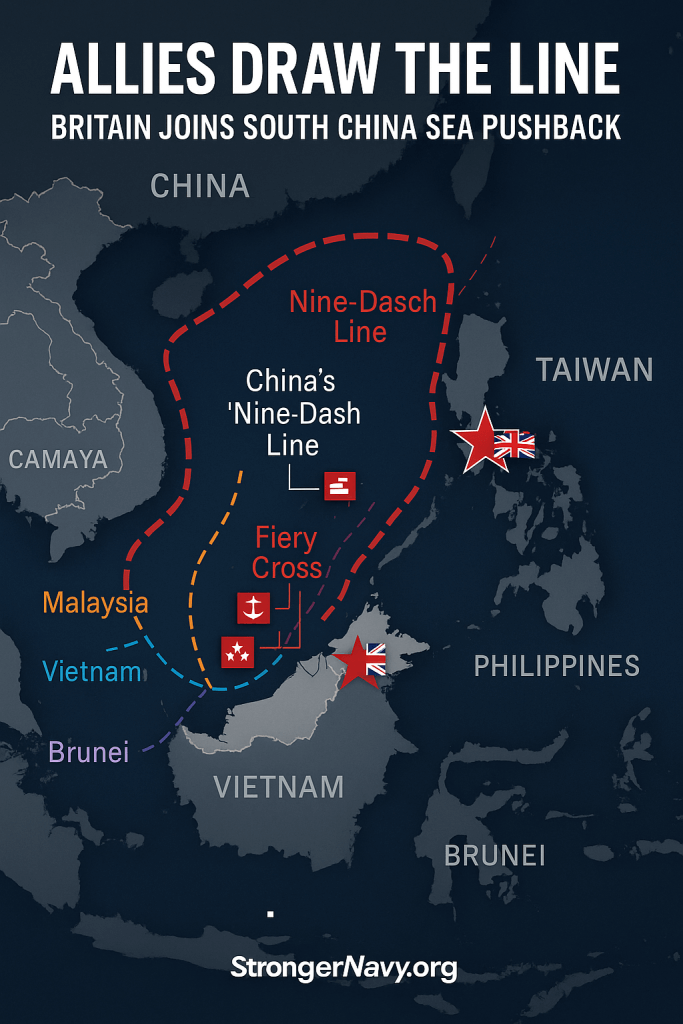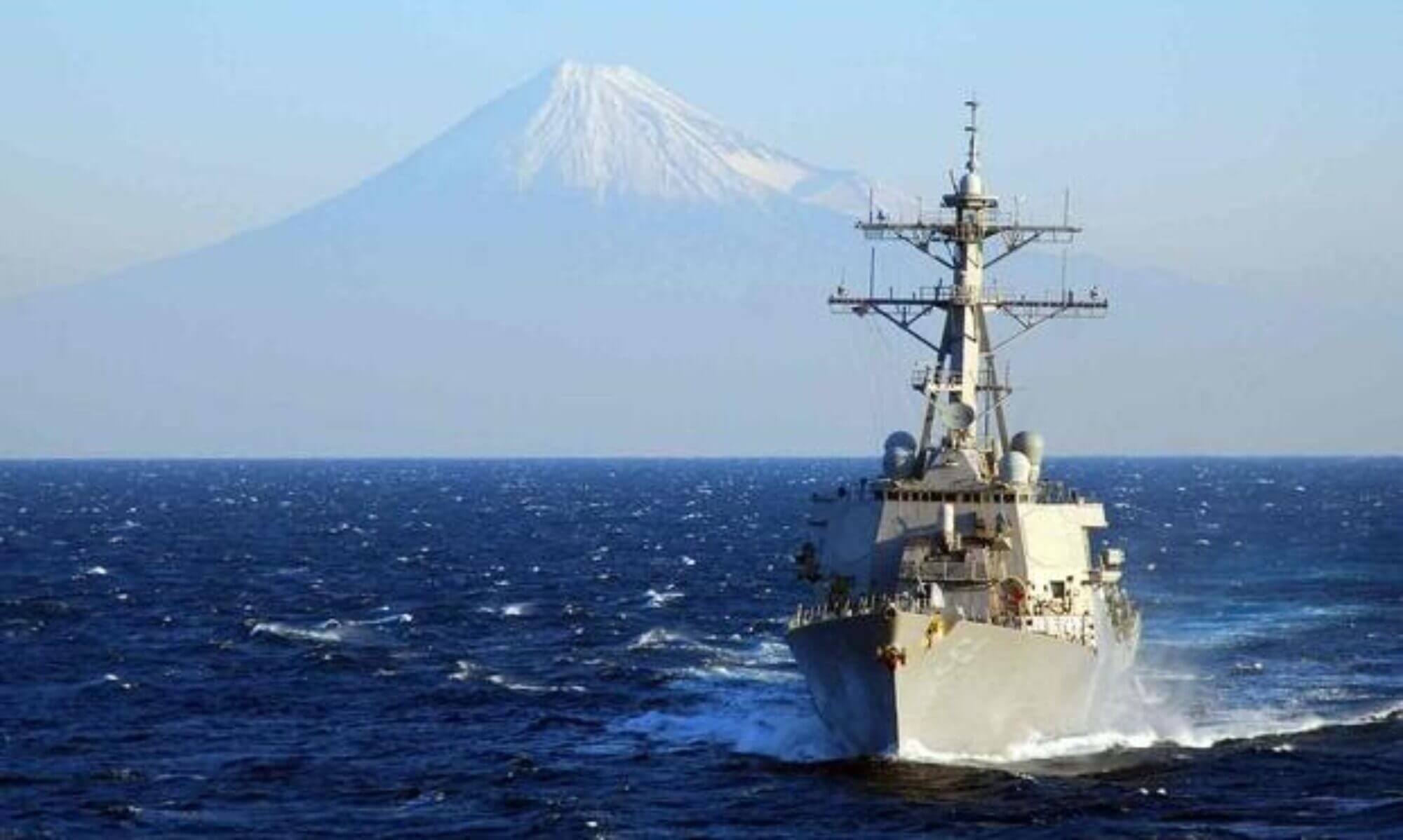
Britain Signals New Military Role in Indo-Pacific
In a major development, the United Kingdom is considering deploying troops to the South China Sea under a new Visiting Forces Agreement (VFA) with the Philippines. This move, announced by the Philippine Defense Secretary Gilberto Teodoro Jr., comes as China intensifies its claims over virtually the entire South China Sea—threatening the sovereignty of key regional allies.
A VFA would give the UK legal grounds to base forces in the Philippines for training, cooperation, and potential conflict readiness. It marks a new chapter in Britain’s Indo-Pacific posture and could eventually bring British troops within 200 kilometers of Taiwan—a critical flashpoint in the U.S.-China rivalry.
Why This Matters
The South China Sea is more than a disputed body of water—it’s a global trade superhighway and a strategic military corridor. A British military presence adds to a growing list of nations pushing back on China’s coercion and militarization of the region.
If finalized, this deal would place the UK alongside the U.S., Japan, Australia, and France in holding joint access agreements with the Philippines. It reinforces a growing international coalition determined to uphold freedom of navigation and resist revisionist claims that threaten peace in the Indo-Pacific.
Background on the Philippines’ Strategic Role
The Philippines’ northernmost islands in the Batanes chain are only 120 miles from Taiwan. These islands have become a focal point for U.S.-Philippines joint drills—including the recent deployment of the U.S. Marine Corps’ NMESIS “ship-killer” missile system.
As tensions rise over Taiwan and Chinese interference at sea escalates, the Philippines is building deeper defense ties not just with the United States, but also with regional and global allies.
Implications for the U.S. Navy
A stronger allied presence in the region could bolster logistics, interoperability, and rapid response capability—all crucial for countering China’s area-denial strategies. It also eases the burden on the U.S. Navy by increasing multinational deterrence capacity.
The move may encourage other NATO and European partners to follow suit, diversifying the military footprint in the Pacific and reinforcing the global rules-based order.
Implications for Our Allies
For Japan, Australia, and South Korea—nations already aligned with the Philippines and the U.S. in multilateral exercises—Britain’s involvement signals a maturing trilateral-plus framework. As these alliances deepen, they collectively raise the cost of aggression and ensure no single country bears the burden alone.
Why Americans Should Care
Every product you rely on—from cars to phones to food—moves through global sea lanes, and much of that commerce passes through the South China Sea. If those lanes are choked, the ripple effects would hit every American household.
A stronger presence of allied nations protects those trade routes, deters aggression, and reassures nations on the front lines of Chinese expansionism that the world is watching—and prepared to act.
This isn’t just about Britain and the Philippines. It’s about defending peace, stability, and freedom of the seas.
Closing Note:
That’s why we launched Charting the Course: Voices That Matter — a 24-part educational series breaking down how we got here, what went wrong, and what must happen next. Our goal is simple: educate the public, connect the dots, and build the support needed to close the readiness gap before it’s too late.
Let’s roll.

